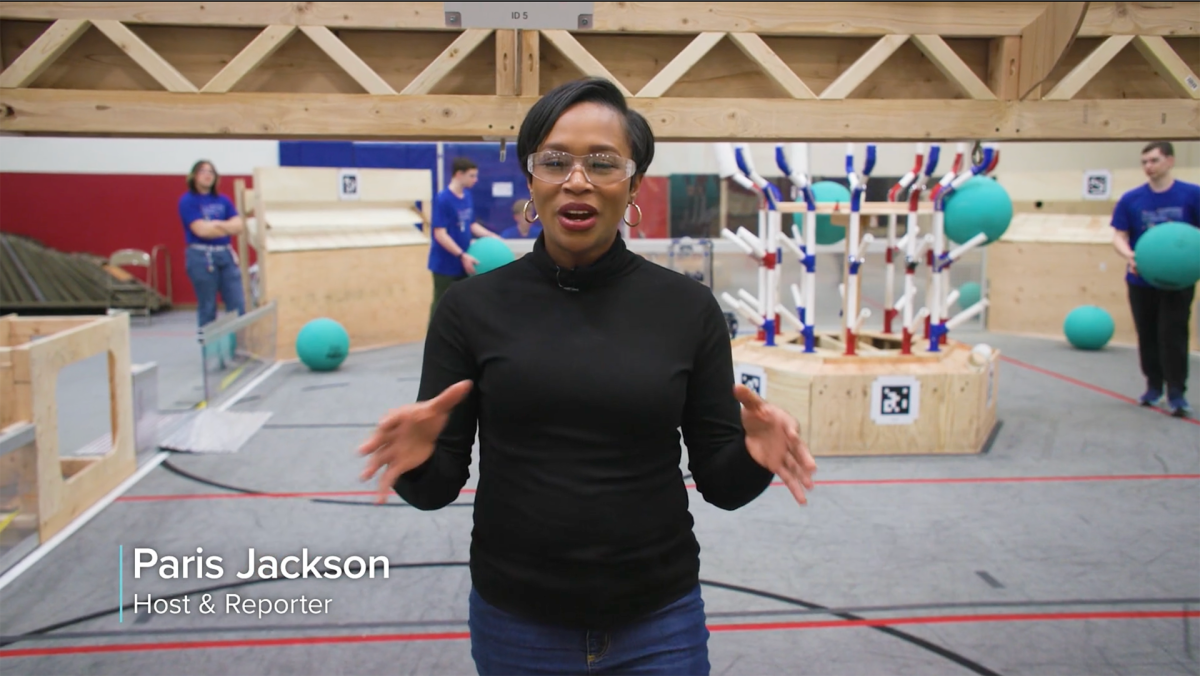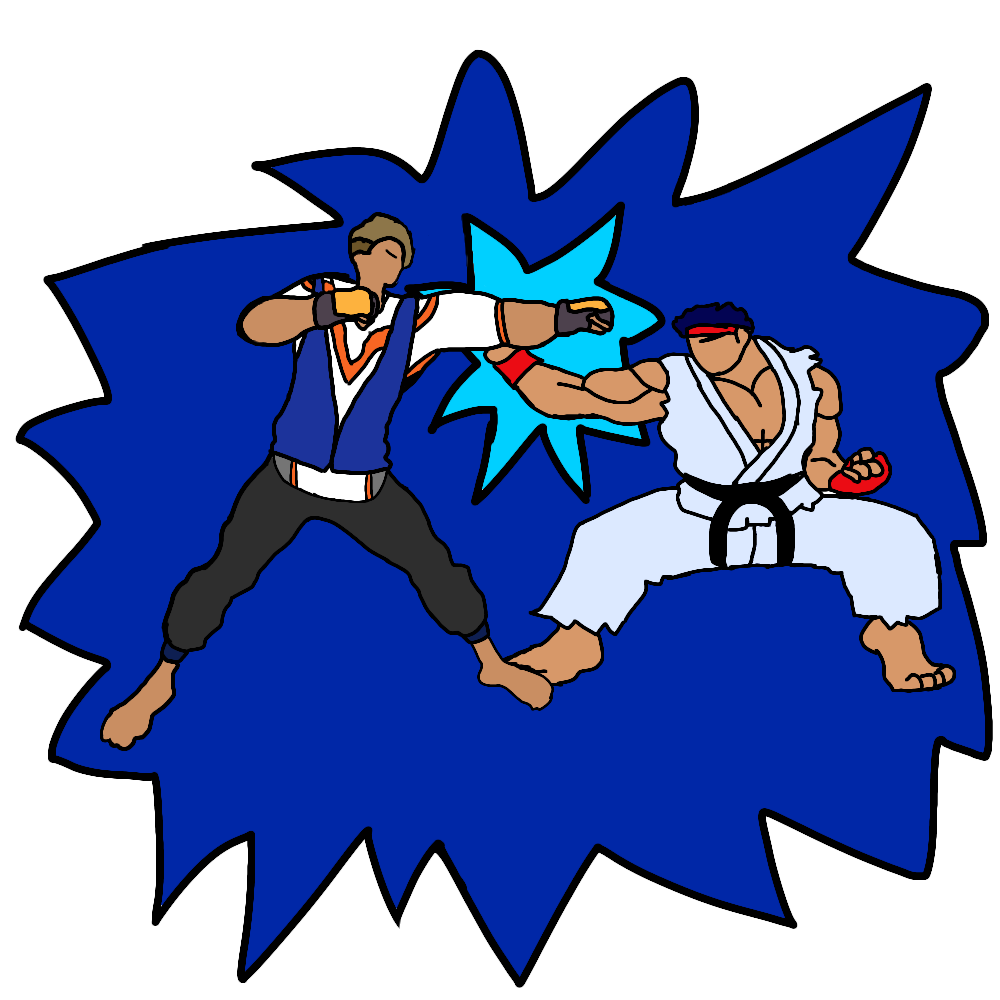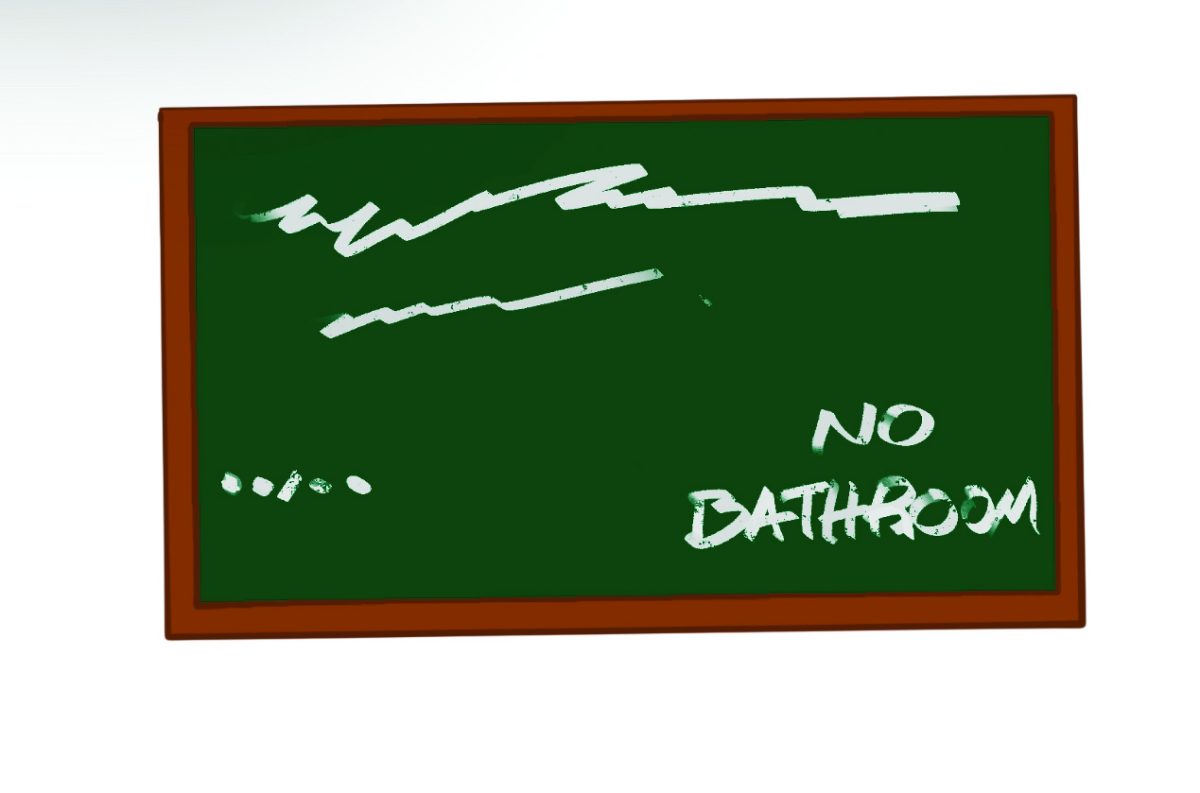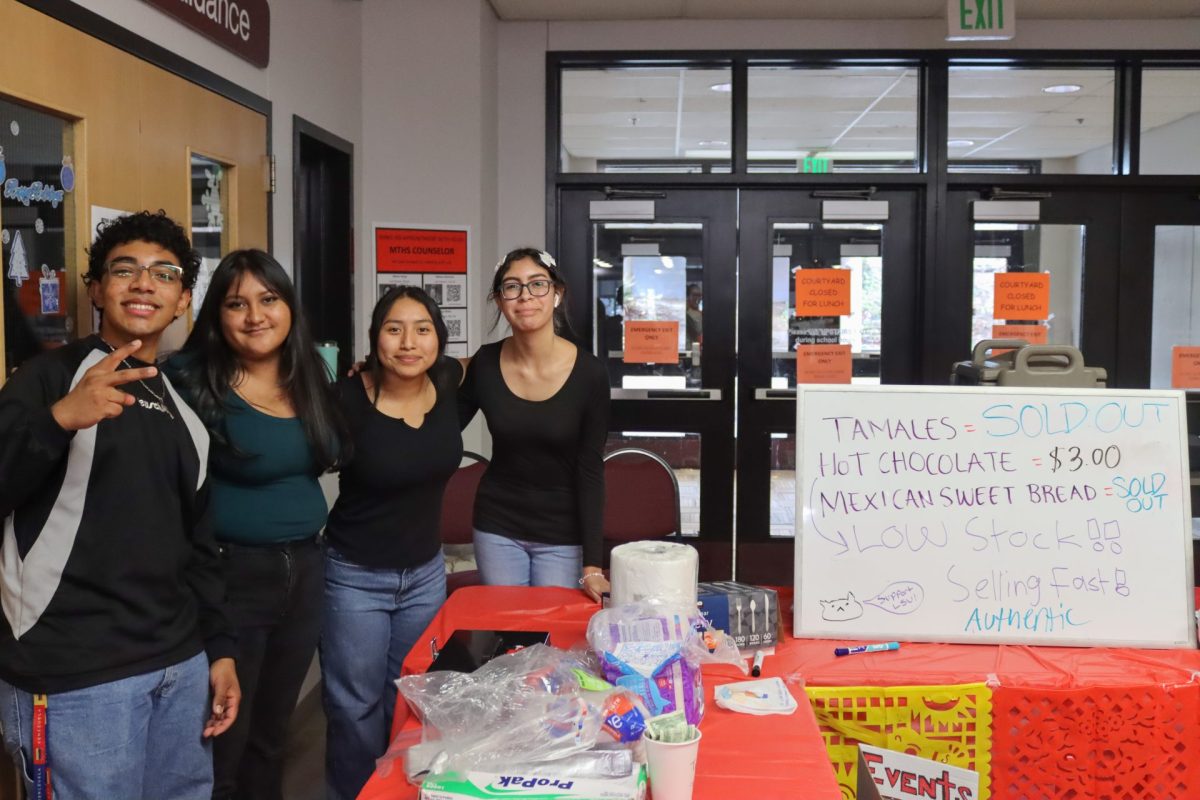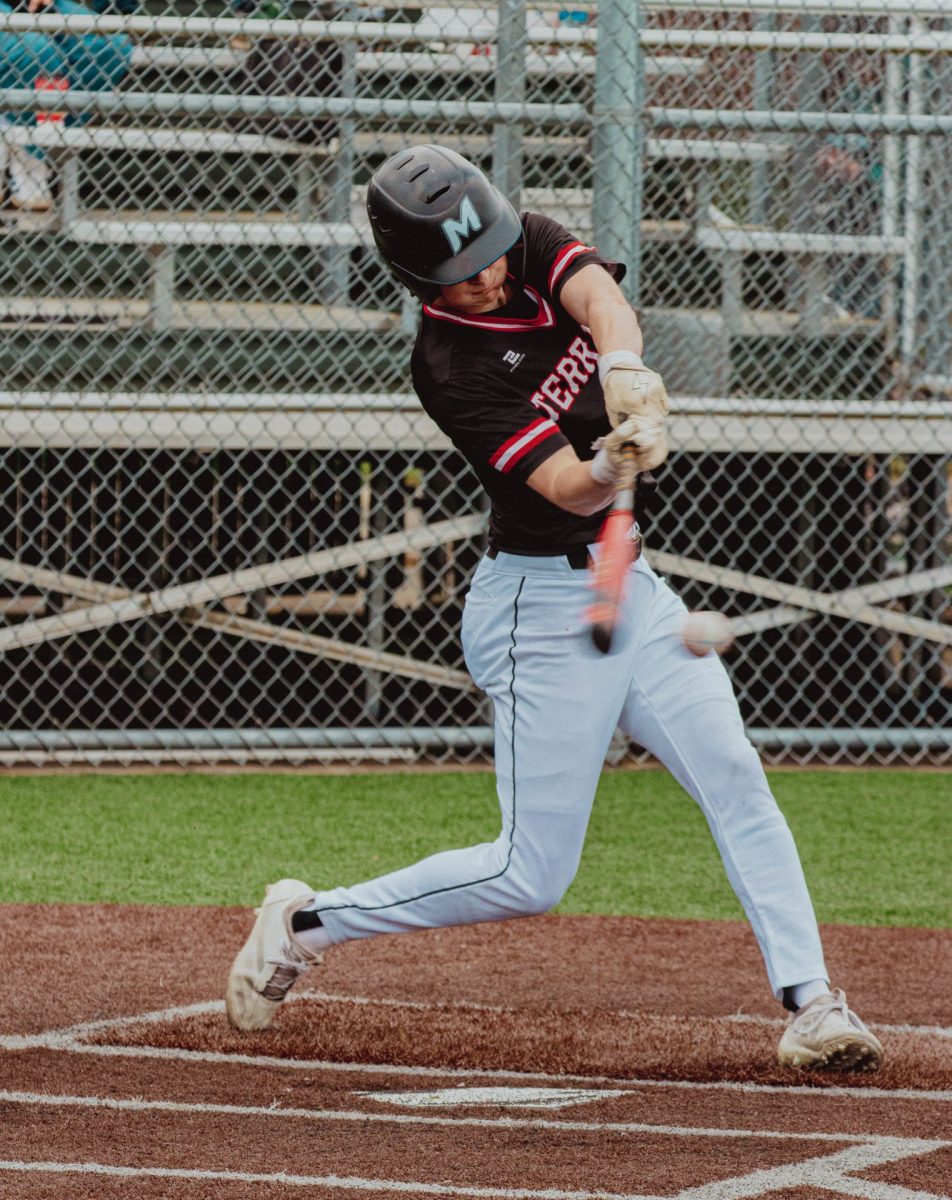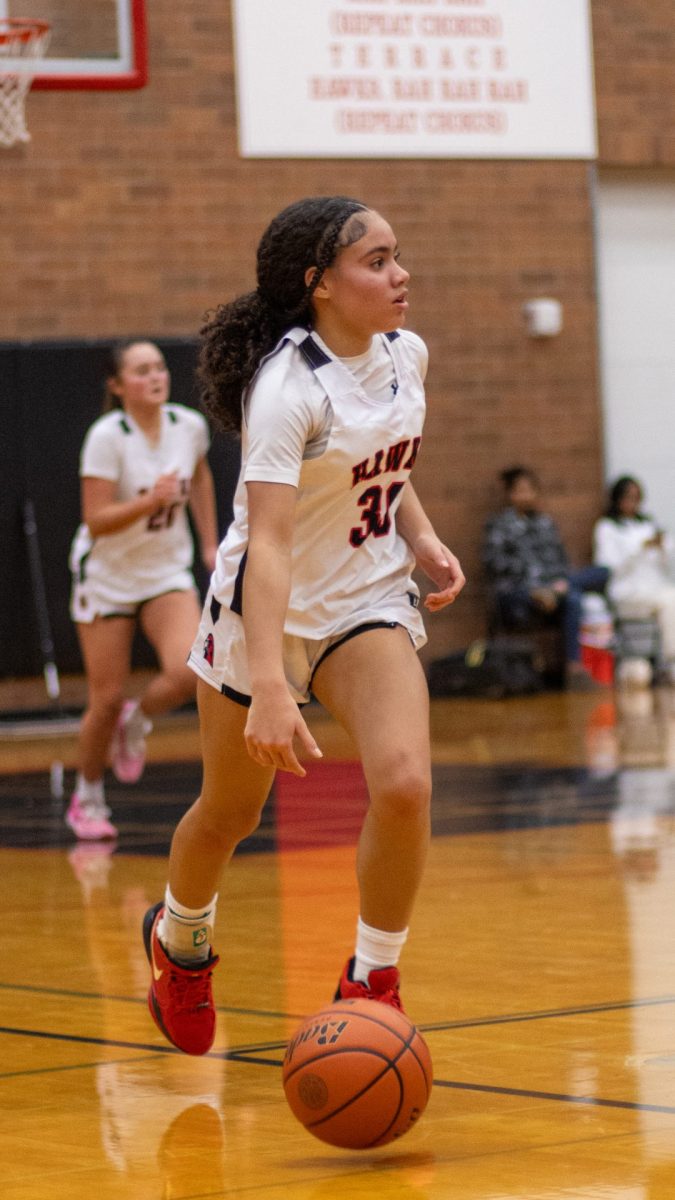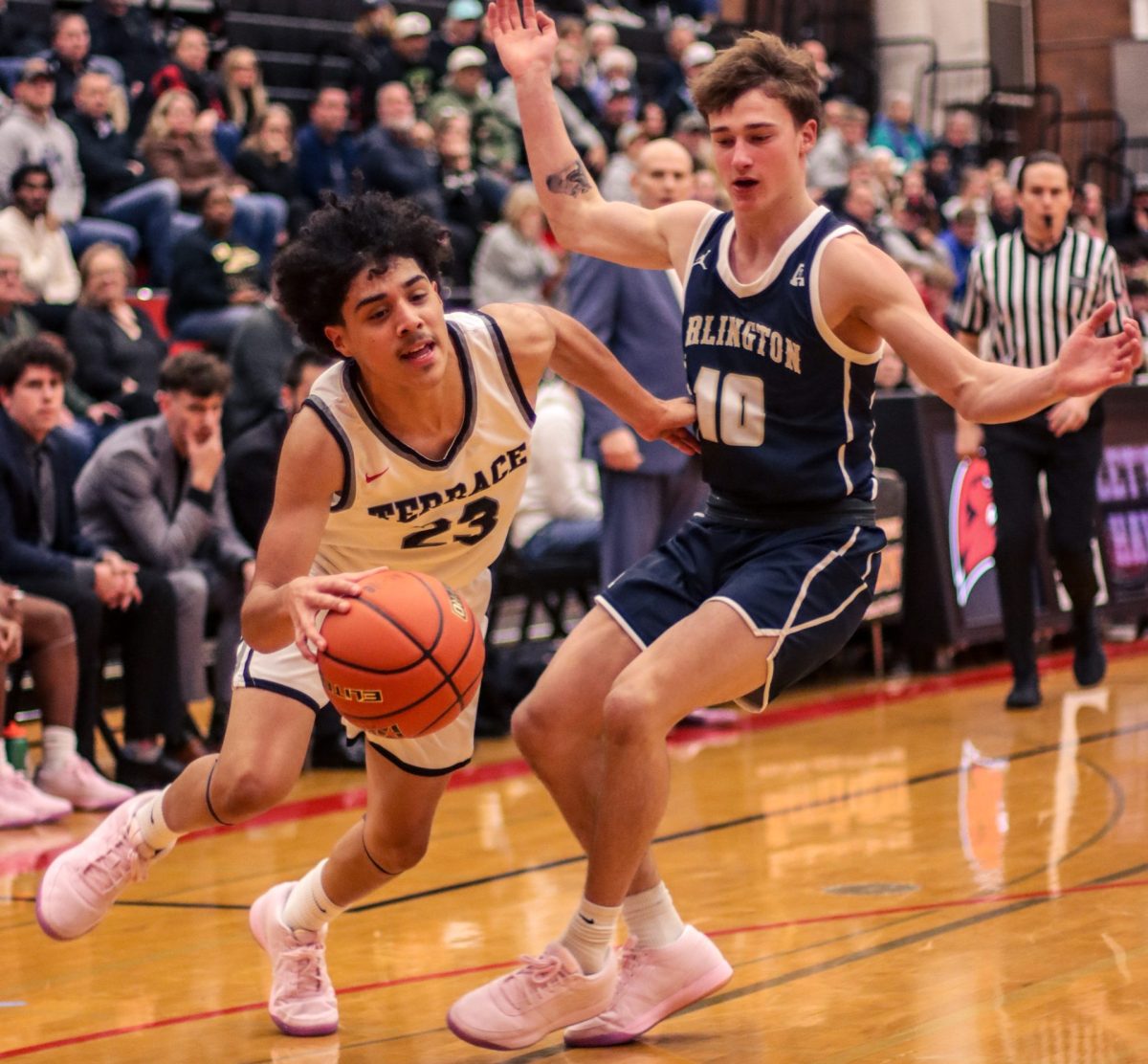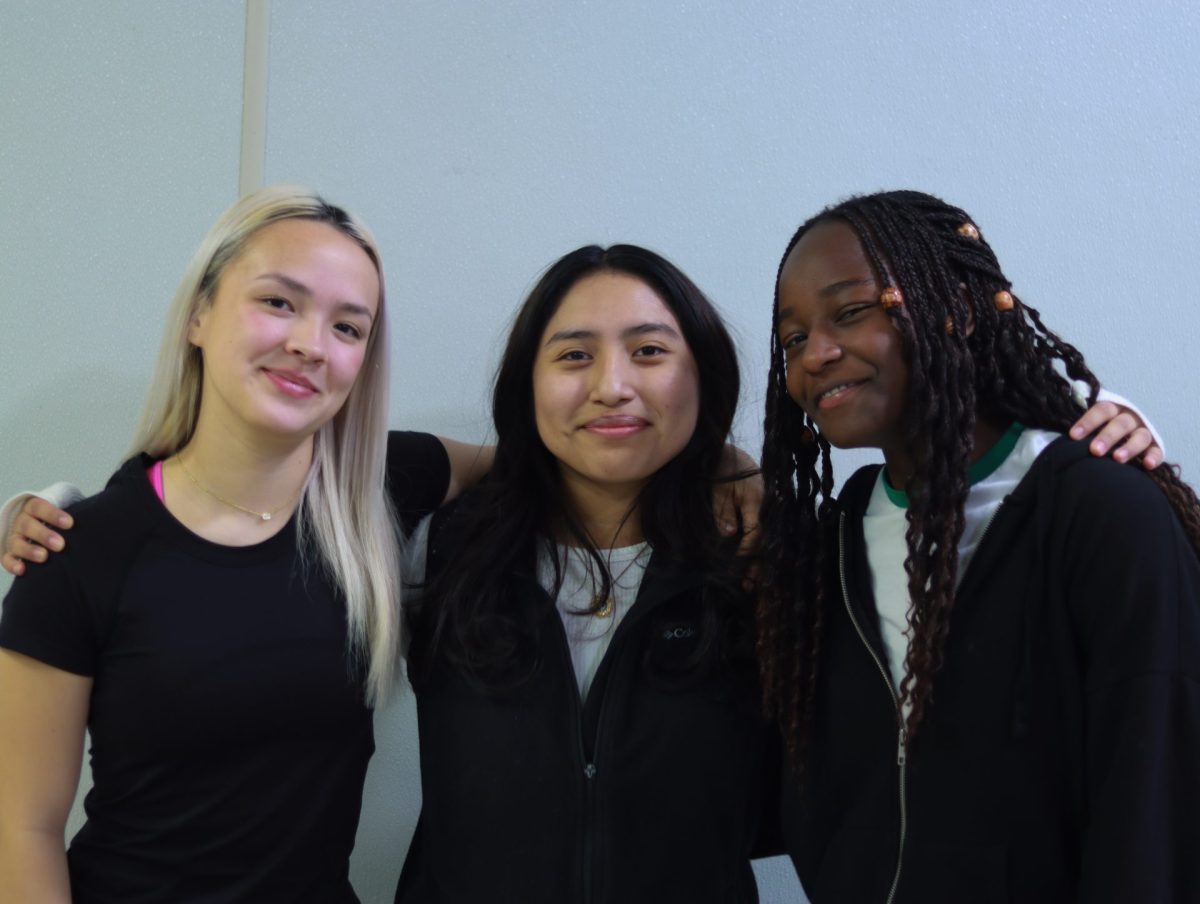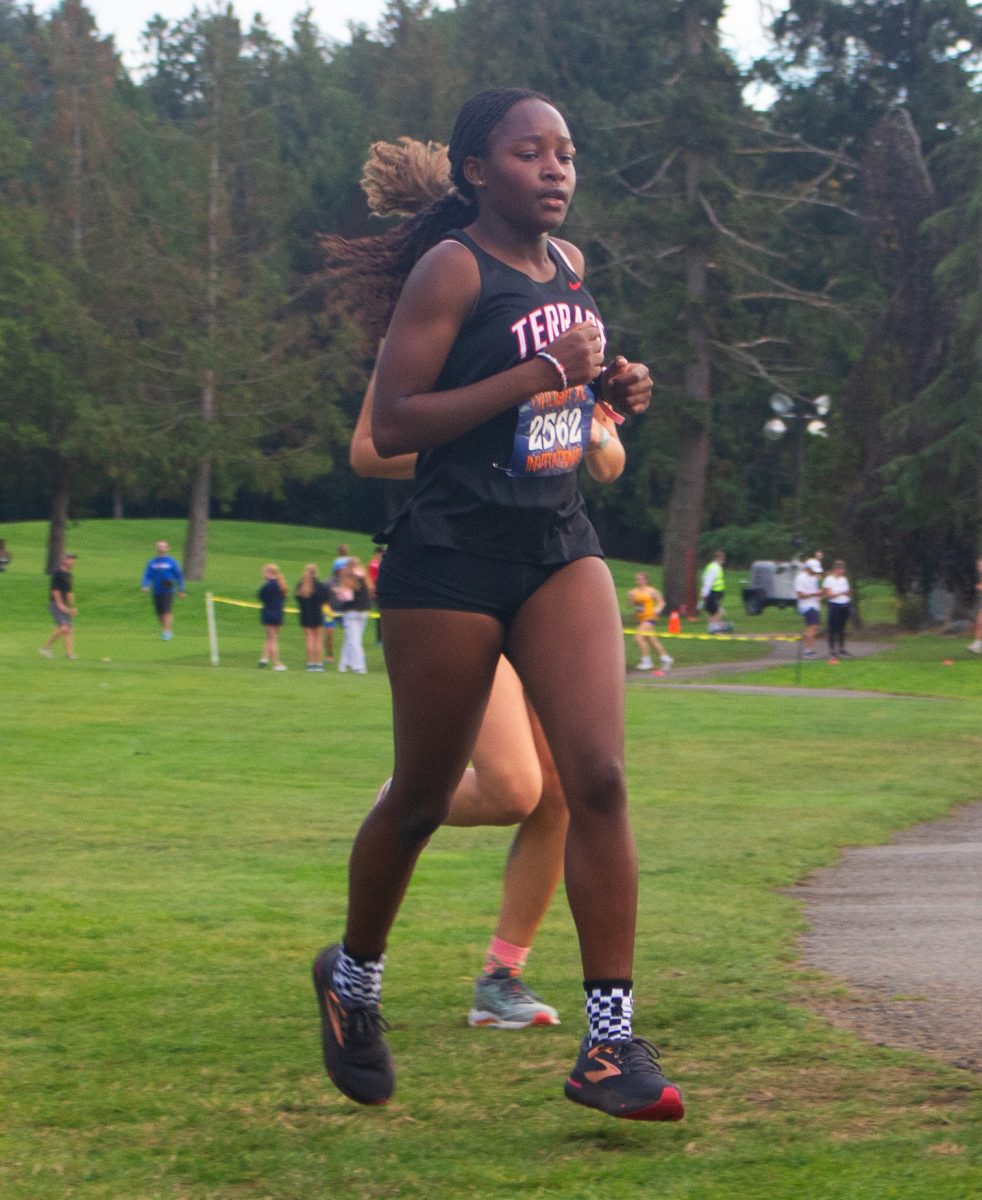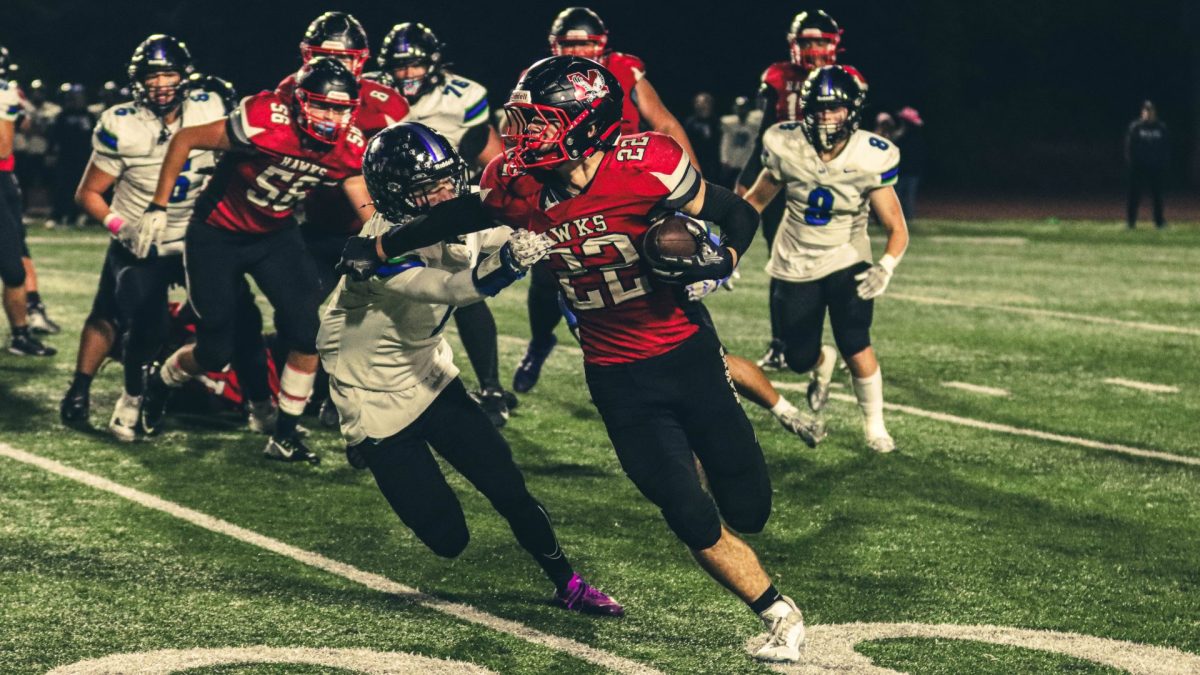It’s 6:15 p.m. There’s approximately 45 minutes before tip-off. The locker room is dead silent with an aura of intensity surrounding the players and coaches inside. Men’s basketball head coach Nalin Sood begins to go over the scouting reports and the points of emphasis all while getting his team battle-ready.
Fast forward to halftime. The team funnels back into the locker after poor play on both ends of the floor. They’re down by eight. Sood scans through the disappointed faces of the players and points out what they did wrong, but also how to correct their mistakes and win them the game.
The second half starts with a fire lit under the team to get the victory. The two teams clash and battle it out in a tit-for-tat fourth quarter. With the Hawks down five points, junior Brock Davis pulls up for a three pointer and swishes it straight through.
During the battle taking place, amidst all the intensity that is emanating from Sood, for just a split second, a smile cracks on his face as he takes a step back and simply admires the game that he has loved for so long.
Although the Hawks would go on to lose this night at Roosevelt in a non-league matchup, he would use this game as a lesson and move onto the next opponent.
This game was just like any other, another run through the motions of something that Sood inherited from his predecessor Roger Ottmar 14 years ago and has upheld with the help of the people around him.
The Man at the Top
In the illustrious history of MTHS men’s basketball, there has become a “tradition of success,” as it says on the team’s website. Ever since Sood inherited the program, he has accumulated 225 wins and 135 losses – a staggering .625 winning percentage. Out of his 14 seasons, he has led his teams to the postseason 12 times as well as earning a state tournament berth seven of those times.
“His success is because he’s so on top of everything,” assistant coach Johnny Phillips said. “He’s so organized and he exemplifies how to be on top of everything.”
As a young kid, Sood had aspirations to become a basketball coach someday and his potential to do so was recognized long before he became the head of this program.
“I took coach Sood scouting with me one day as a young boy and I kept telling coach Ottmar that ‘this kid was going to be a coach someday,’” Phillips said.
As a consensus, Sood’s meticulousness is noted by each and every one of his assistant coaches. So much so that he was granted a comparison with Duke University’s famed and storied head coach Mike Krzyzewski.
“Mike Krzyzewski is who I’d compare [Sood] to [because of] the hard-nosed intensity of their coaching styles. They get the most out of their kids,” assistant coach Greg Wirtz said.
But that wasn’t the only famed and storied head coach that Sood has been compared to.
“I say he’s like Gregg Popovich from San Antonio,” assistant coach Allen Shannon said. “It’s not all about you. It’s about the system. The players are a cog in the wheel. Sood demands the same types of things that Popovich does as well.” Shannon played at Terrace from 1977-1980, and his son Ryan played for coach Sood.
As much credit as Sood is given, he always redirects the credit back to his players.
“It’s all about the kids. I’m only as good as my players. Our kids battle and our kids play hard,” Sood said. “I’ve been fortunate enough to work with some phenomenal basketball players here, like the one upstairs who’s the dean of students here at MTHS, [behavior coordinator] Michael Boxley. If I can attribute my success to one thing, it’s the players. [Former] head coach [Merle] Blevins would say that. [Former] head coach Ottmar would say that. I believe that and I live my life by that.”
Sood’s job, as he describes, is to figure out what his players didn’t do and make them work on those particular aspects. Before every game, Sood spends time in his office writing up all of the points of emphasis, the scouting report, and the overall game plan. After every game, he makes sure to update his practice plans, which are typically already planned out a week in advance so that he’s ready week-to-week.
“[The assistant coaches and I] all spend a lot of time mastering our craft,” Sood said. “I do personally. I go home and break down the tape and see what we did wrong. I decide what I need to filter and determine what we need to get better at because there are thousands of things that we could get better at, but they’re only high school kids and they have their own lives.”
Sood’s assistants see his work ethic, and it rubs off as a result.
“Sood is extremely detailed and driven to excellence. All great coaches are detailed and organized. There’s a certain demand of excellence that he expects and he expects a lot from the coaches that work under him. Seeing how hard he works, it makes you want to work that hard,” Shannon said.
All of this planning is geared for the end result.
“As a coach, we want to win state championships. We’re competitive, you can tell. The goal is always to be the best team we can be when it’s all said and done,” Sood said. “Some day, we’d like to say that we’ve won a state championship, but something I’ve always said is that if winning a state championship doesn’t replicate the feeling that we had as coaches and players winning fourth in state, then to hell with winning a state championship. Doing it the right way is what it’s all about.”
Winning isn’t the only reason Sood coaches basketball.
“If winning a state championship is your only goal as a coach, then there’s a lot of failures out there. Winning isn’t my only goal. When I got to talk to the alumni at Jam Session XXII, I got to talk to dads, husbands, firefighters, businessmen, financial advisors and see who they’ve become as products of MTHS, not just MTHS basketball. That’s your goal,” Sood said.
The Unsung Heroes
Oftentimes, people only look at the person at the top of the program and fail to give credit to the supporting cast. For Sood, he attributes a lot of his success to some of his supporting cast.
“I always believe that my coaches are always working harder than anybody,” Sood said. “And something else is I’m coaching with guys that are my friends. If I had to pick guys for the assistant coach positions, I’d pick the guys that are here right now. My success is a product of my environment and these assistant coaches are it.”
From the assistant coaches’ perspectives, they feel constantly included and recognized by the man at the top.
“[Sood] has always been really good about including his assistant coaches in all of the decision making, points of views,” Wirtz said.
The MTHS basketball program has five assistant coaches: Allen Shannon, Greg Wirtz, Johnny Phillips, Tim Cashman and Anthony Asbury.
Coach Shannon describes himself as the defensive coordinator.
“I analyze how they’re playing on that side of the ball, if they’re rebounding, how our help side defense is,” he said.
While Shannon operates on the defensive side of the ball, Wirtz spends his time operating the offensive side of the ball.
“I’m kind of like the offensive coordinator. I have a list of plays and he has the ones that he wants to use for the game marked off,” Wirtz said. “As a head coach, you get stressed out and aren’t thinking straight, so it’s my job to come up with plays to suggest and use. Sometimes it’ll work, and other times it won’t.”
Phillips, known by most as Coach Philly, is the specialty coach.
“I’m the ear of the players as well as their shoulder to cry on. My role is to be close to these guys and be with these guys 12 months a year and become their big brother,” Phillips said.
Cashman, a former art teacher at MTHS, is known as the character coach.
“Sood calls me the character coach. I do anything and everything that’s needed, from getting ice to talking to someone off to the side and keeping track of stats and scores. I’ve done it all,” Cashman said.
The Hawk Standard
From the birth of the MTHS basketball program in 1960-61 through the 2014-2015 season, the Hawks have a total win-loss record of 678-579, or a .540 percentage.
From all of the coaches, the common themes of the program are hard work and dedication.
“You gotta love the program and you gotta want the program to succeed. Once you realize that, it’s not as hard. You have to be there all the time and driving everyone else,” Shannon said. “Hard work equals long hours, but the goal of mine is for [the team] to get better every day.”
Wirtz added to that by giving his own definition of hard work.
“Hard work to me is sweat and doing things that you don’t want to: putting time in the weight room, running the hills, working out with coach [Phillips], running lines at the end of practice even if you’re tired, doing defensive drills, etc. When you’re exhausted and sweating after a practice and all you want to do is take a nap, that’s hard work,” Wirtz said.
Sood combined the statements of Wirtz and Shannon and defined this program and its mission and philosophy.
“Our program philosophy is student first, athlete second. We have high standards and expectations on the court just like we do off the court, whether it’s in the classroom, in the hallways, in the community. You put it all together, the culmination of hard work in the classroom and on the court is what makes a successful basketball team. If you don’t have the foundation of all those components, then you have nothing to build off of.”



